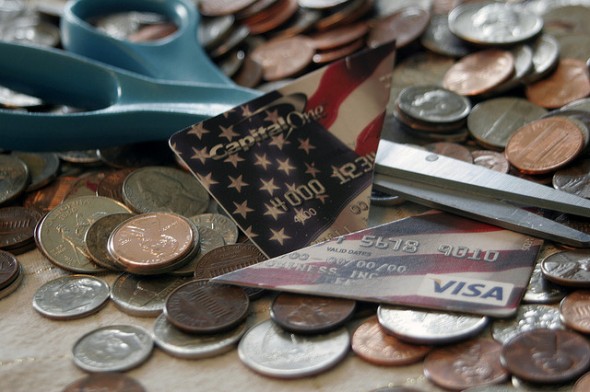When it comes to building credit, many of us are confused as to how to actually build good credit, and the major details that make up a credit card contract or a credit report. This information is extremely important to be aware of, especially when starting out or trying to rebuild your credit after a financial set back.
Unfortunately, the past few years have been difficult for many in terms of finances and credit. As a result of the financial meltdown, banks and other credit lenders have clamped down on their lending policies, making it more difficult to obtain credit for those who do not already have a good credit history. Luckily, new legislation proposed in Congress may help millions of Americans build their credit without having to go into debt to do so
Conventional Means of Building Credit
The conventional method of building credit usually requires that you go into debt, either via a secured line of credit such as a mortgage, or an unsecured line of credit, such as a credit card. With traditional lines of credit, the consumer usually has a billing cycle of 30 days, in which all purchases made in that period of time go towards the accumulation of that month’s, bill (Debunking, 2013). After the billing cycle the consumer is given a grace period that ranges from 15 to 25 days.
If the balance has been paid in full, the consumer will not acquire any finance charges during this grace period. However, if the bill has not been paid in full, finance charges will accumulate on the balance, along with any other purchases that have been made during this time. Your credit score is built on how frequently your card is used, along with how much credit you have used of your total balance, and most importantly, how quickly you make your payments (Debunking, 2013).
This last factor is what has been causing a great deal of stress for those who want to build their credit. Consistently paying late on bills can cause one’s credit score to plummet and with the new strict policies regarding lending, these lower scores have stopped many from being able to purchase a home, rebuild their credit, or take out credit for some other means such as a business venture.
New Legislation
Recently, members of Congress proposed The Credit Access and Inclusion Act. The purpose of this Act is to give people, who would not otherwise, have access the ability to build their credit scores through using utility bills as proof of positive payment histories. Currently, utility companies do not report a customer’s payment history unless they have been late with payments. This Act will allow these companies to report to credit reporting agencies when customers pay on time.
This added payment history will, presumably, serve to improve customer’s credit scores, which will help make them eligible for mortgage loans, which many now require a minimum FICO score of 750 (Ellison & Fitzpatrick, 2013). This legislation will not only help those with low FICO scores, but also those with no credit at all. According to Representatives Keith Ellison and Mike Fitzpatrick the Policy Economic Research Council states that by adding just one utility bill, nearly 74% of consumers who do not currently have any credit history, are able to begin building a credit report and FICO score.
When it comes to building credit many people have been unable to begin building a credit history while others’ scores have taken a serious hit due to loss of a job, persistent unemployment or underemployment, or a number of other reasons. When it comes to building a solid financial foundation, a good credit history is a major component of this foundation. This new legislation can help those millions of Americans begin to build on their goals of owning a home, becoming an entrepreneur, or having a decent financial foundation for just starting out in life, all of which are essential components of the American dream.
Sources: Money Control, The Hill
Photo Credit: TangoPango
